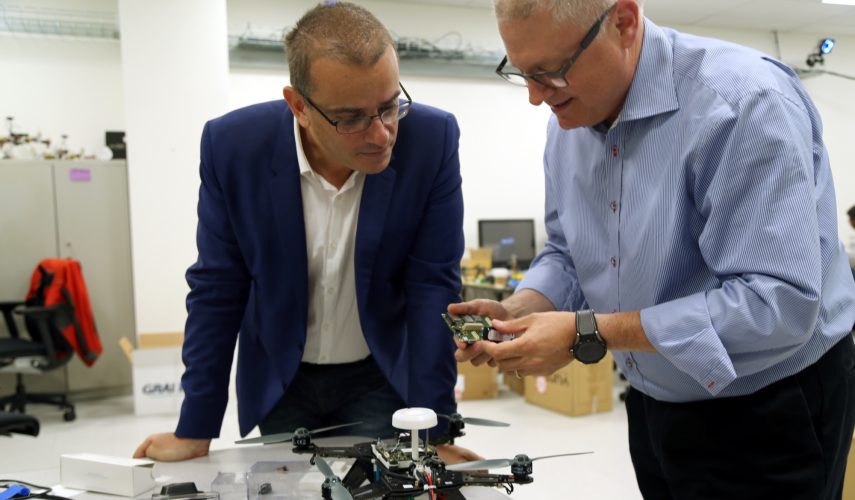-
Tips for becoming a good boxer - November 6, 2020
-
7 expert tips for making your hens night a memorable one - November 6, 2020
-
5 reasons to host your Christmas party on a cruise boat - November 6, 2020
-
What to do when you’re charged with a crime - November 6, 2020
-
Should you get one or multiple dogs? Here’s all you need to know - November 3, 2020
-
A Guide: How to Build Your Very Own Magic Mirror - February 14, 2019
-
Our Top Inspirational Baseball Stars - November 24, 2018
-
Five Tech Tools That Will Help You Turn Your Blog into a Business - November 24, 2018
-
How to Indulge on Vacation without Expanding Your Waist - November 9, 2018
-
5 Strategies for Businesses to Appeal to Today’s Increasingly Mobile-Crazed Customers - November 9, 2018
Making Machines See: Intel Agrees to Acquire Movidius
Intel’s RealSense brings computer vision to machines to visually process and understand its surroundings.
Advertisement
Intel’s RealSense platform was created to “enable intelligent, interactive and autonomous machines with human-like 3D perception”. Intel has complimented its acquisition of Movidius with the purchase of several machine learning, cognitive computing and deep learning companies.
Remi El-Ouazzane, the CEO of Movidius, goes on to explain in its statement that while its been attacking the evolution of autonomous machines from a device level, with Intel, the Movidius team will be attacking these trends from the cloud.
“Upon integration, computer vision enables navigation and mapping, collision avoidance, tracking, object recognition, inspection analytics and more – capabilities that are extremely compelling in emerging markets”.
“The ability to track, navigate, map and recognize both scenes and objects using Movidius’ low-power and high-performance SoCs [systems on chips] opens opportunities in areas where heat, battery life and form factors are key”, Josh Walden, senior vice president and general manager of Intel’s New Technology Group, wrote in a blog post yesterday. This means the SoC can be used in devices where access to power is contained, such as small drones, yet still allow computer vision systems to run. Movidius is working on the Google’s Project Tango after declaring its association with Google in January, 2016.
Movidius has existing deals with Lenovo, for its Myriad 2 processors, and with Google, to use its neural computation engine to improve machine learning capabilities of mobile devices.
Intel says Movidius will help advance its RealSense platform-specifically augmented/virtual/merged reality, drones, robotics, and digital security cameras.
This year has seen the chipmaker showcase Project Alloy, a reference platform for a wireless VR headset that packs all the sensors and chips needed to power it within the headset, rather than relying on external sensors or a PC to provide the processing grunt.
Advertisement
The addition of Movidius’ technology to RealSense will help “trigger a Cambrian explosion of compute” for the estimated 50 billion devices expected to be network-connected by 2020, Walden said yesterday.





























